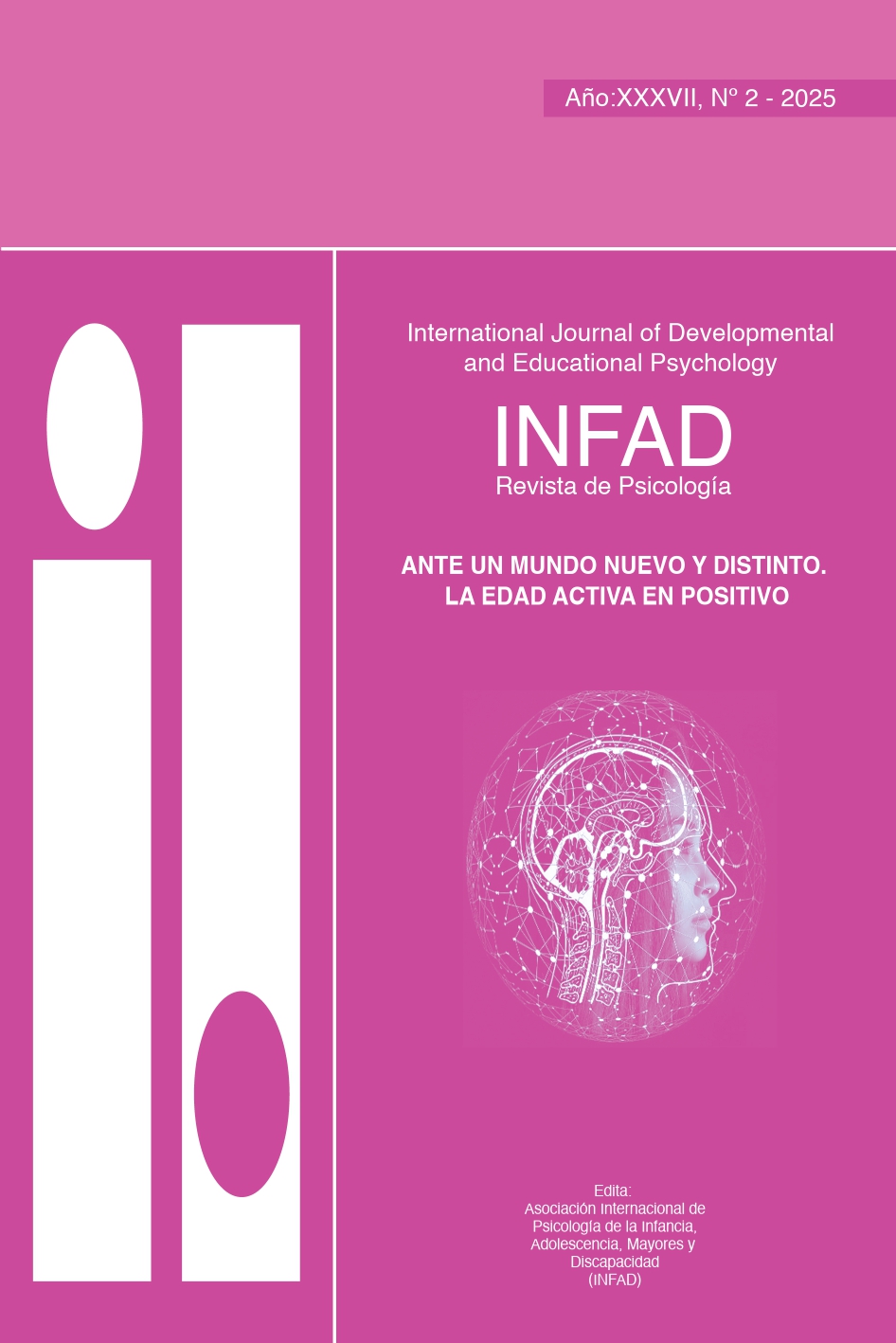Primary school students faced with discrepant information: an exploratory study
Main Article Content
Abstract
An exploratory study was carried out with primary school students between 9 and 10 years of age with the aim of measuring whether students can integrate information from multiple documents that include discrepancies and refer to the sources in a post-reading essay. Students read six short texts with discrepancies and wrote a short essay to explore the type of the ideas written (literal, inferential, wrong), the use of in-favor and against arguments, and the number of references to the sources read (i.e., sourcing skill). In general, students seldom use source information and tend to recall more literal ideas. Older students included more inferences and against arguments. These findings suggest that integrating information from multiple discrepant documents is a complex skill learners struggle with. Specific assessment needs to be developed to evaluate this ability.
Article Details
Section

This work is licensed under a Creative Commons Attribution-NonCommercial-NoDerivatives 4.0 International License.
Attribution — You must give appropriate credit, provide a link to the license, and indicate if changes were made. You may do so in any reasonable manner, but not in any way that suggests the licensor endorses you or your use.
NonCommercial — You may not use the material for commercial purposes.
NoDerivatives — If you remix, transform, or build upon the material, you may not distribute the modified material.

This work is licensed under a Creative Commons Attribution-NonCommercial-NoDerivatives 4.0 International License
How to Cite
References
Anmarkrud, Ø., Bråten, I., Florit, E., & Mason, L. (2021). The role of individual differences in sourcing: a systematic review. Educational Psychology Review, 1-44.
Braasch, J.L.G. (2020) Advances in research on internal and external factors that guide adolescents’ reading and learning on the Internet, Journal for the Study of Education and Development, 43:1, 210-241, DOI: 10.1080/02103702.2019.1690851
Braasch, J.L.G., Haverkamp, Y.E., Latini, N. et al. (2022). Belief bias when adolescents read to comprehend multiple conflicting texts. Reading and Writing, 35, 1759–1785. https://doi.org/10.1007/s11145-022-10262-w
Braasch, J. L. G., Rouet, J.-F., Vibert, N., & Britt, M. A. (2012). Readers’ use of source information in text comprehension. Memory and Cognition, 40, 450–465. doi:10.3758/s13421-011-0160-6.
Braasch, J. L., Bråten, I., Strømsø, H. I. Anmarkrud, Ø., & Gerguson, L. E. (2013). Promoting secondary school students’ evaluation of source features of multiple documents. Contemporary Educational Psychology, 38, 180-195.
Beker, K., van den Broek, P., & Jolles, D. (2019). Children’s integration of information across texts: Reading processes and knowledge representations. Reading and Writing: An Interdisciplinary Journal, 32(3), 663–687. https://doi.org/10.1007/s11145-018-9879-9
Britt, M. A., Perfetti, C. A., Sandak, R., & Rouet, J. F. (1999). Content integration and source separation in learning from multiple texts. In S. R. Goldman, A. C. Graesser, & P. van den Broek (Eds.), Narrative comprehension, causality, and coherence: Essays in honor of Tom Trabasso (pp.209–233). Mahwah, NJ: Lawrence Erlbaum Associates.
Britt, M. A., & Rouet, J.-F. (2012). Learning with multiple documents: Component skills and their acquisition. In J. R. Kirby & M. J. Lawson (Eds.), Enhancing the quality of learning: Dispositions, instruction, and learningprocesses (pp. 276–314). New York, NY: Cambridge University Press.
Bråten, I., Brante, E. W., and Strømsø, H. I. (2018). What really matters: the role of behavioural engagement in multiple document literacy tasks. Journal of Research in Reading. 41, 680–699. doi: 10.1111/1467-9817.12247
Cain, K., & Oakhill, J. V. (1999). Inference making ability and its relation to comprehension failure in young children. Reading and Writing, 11(5–6), 489–503.
Cain, K., Oakhill, J. V., Barnes, M. A., & Bryant, P. E. (2001). Comprehension skill, inference-making ability, and the relation to knowledge. Memory & Cognition, 29(6), 850–859. https://doi.org/10.3758/BF03196414
Florit, E., Cain, K., & Mason, L. (2019). Going beyond children’s single-text comprehension: The role of word reading, working memory, comprehension monitoring and source use in 4th graders’ multiple-document comprehension. British Journal of Educational Psychology, 90(2), 449–472. https://doi.org/10.1111/bjep.12288
Florit, E., Roch, M., Di Cataldo, R., & Levorato, M. C. (2020). The Simple View of Reading in Italian beginner readers: Converging evidence and open debates on the role of the main components. Learning and Individual Differences. https://doi.org/10.1016/j.lindif.2020.101961
Kessler, E. D., Braasch, J. L. G., & Kardash, C. M. (2019). Individual differences in revising (and maintaining) accurate and inaccurate beliefs about childhood vaccinations. Discourse Processes, 56, 415–428. doi:10.1080/0163853X.2019.1596709
Macedo-Rouet, M., Braasch, J.L.G., Britt, M.A., & Rouet, J.F. (2013). Teaching fourth and fifth graders to evaluate information sources during text comprehension. Cognition and Instruction, 31, 204-226.
Macedo-Rouet, M., Potocki, A., Scharrer, L., Ros, C., Stadtler, M., Salmerón, L., & Rouet, J.-F. (2019). How good is this page? Benefits and limits of prompting on adolescents’ evaluation of web information quality. Reading Research Quarterly, 54, 299–321.
Martínez, T., Vidal-Abarca, E., Sellés, P., & Gilabert, R. (2008). Evaluación de las estrategias y procesos de comprensión: el Test de Procesos de Comprensión. Journal for the Study of Education and Development,31(3), 319-332.
Paul, J., Cerdán, R., Rouet, J.-F., & Stadtler, M. (2018). Exploring fourth graders’ sourcing skills. Journal for the Study of Education and Development, 41(3), 536 580. https://doi.org/10.1080/02103702.2018.1480458
Richter, T., and Maier, J. (2017). Comprehension of multiple documents with conflicting information: a two-step model of validation. Educ. Psychol. 52, 148–166. doi: 10.1080/00461520.2017.1322968
Rouet, J-F., & Britt, M. A. (2011). Relevance processes in multiple document comprehension. In M. T. McCrudden, J. P. Magliano & G. Schraw (Eds.), Text relevance and learning from text (pp. 19–52). Greenwich, CT: Information Age Publishing.
Rouet, J.-F., & Potocki, A. (2018). From reading comprehension to document literacy: Learning to search, evaluate, and integrate information across texts. Journal for the Study of Education and Development, 41(3), 415–446. https://doi.org/10.1080/02103702.2018.1480313
Rouet, J. F. (2006). The skills of document use: From text comprehension to web-based learning. Mahwah, NJ: Erlbaum.
Rouet, J.-F., Britt, M.A., & Durik, A.M. (2017) RESOLV: Readers’ Representation of Reading Contexts and Tasks, Educational Psychologist, 52(3), 200-215, DOI: 10.1080/00461520.2017.1329015
Salmerón, L., Sampietro, A., & Delgado, P. (2020). Using Internet videos to learn about controversies: Evaluation and integration of multiple and multimodal documents by primary school students. Comput. Educ., 148, 103796.

